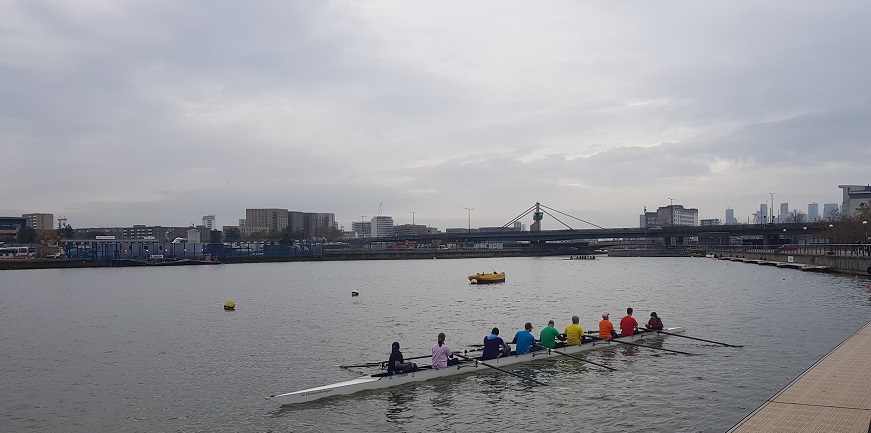Rainbow Races instead of Rainbow Laces: How one rowing club are breaking down the barriers for LGBTQI+ participation in sport
On a dark and dreary Saturday in London there was an array of colour cutting through the Royal Albert Docks.
You may be familiar with the Rainbow Laces campaign launched by Stonewall six years ago to encourage sportspeople to wear rainbow coloured laces to support LGBT equality in sport.
But what about sports where shoelaces aren’t on show and are not the key focus?
London Otters, the world’s largest LGBTQI+ rowing club, came up with a solution.
Instead of laces, they host a Rainbow Races regatta.
It’s simple really, eight people are put in a boat and each of them wear a different coloured t-shirt to represent the colours of the pride flag.
The weather may have been dull, but the docks were vibrant with 55 colourful competitors on Saturday, the biggest turnout for event to date.

With 150 members, London Otters Rowing Club was set up five years ago to help break down the barriers of LGBTQ+ individuals getting involved with sport.
Sean O’Dwyer, a member of the club, highlights the mantra of the club: “We believe the club is a safe space, welcoming for everyone and they can participate regardless of gender, age, sexuality, religion or skill.”
Sean joined the club a year and a half ago and hasn’t looked back since, becoming the club’s head of PR so that he could “give back to the family that had given me so much.”
Speaking about his reasons for joining, Sean, who had never rowed before, said: “I was just out of a relationship and I really wanted to get involved with a sport to improve my fitness and my mental health.
“I was terrified that I wouldn’t be good enough and I would be the weak one, but it improved my physical health, mental health, and everyone was so warm and welcoming,” he continued.

Members of the LGBTQI+ community can often face more barriers than most when it comes to sport.
The club’s chairman, Craig Batton, views someone’s personal history as the primary barrier that prevents them from signing up to a sports club.
“A lot of people come through school, college, university and felt isolated or separated from general mainstream clubs and they come to do sport with us because they have that feeling of inclusivity and they feel like they are not on the perimeter, on the outside,” Craig explained.
This played a major part in his own reasoning for joining the Otters, saying: “I am tainted by what I had at school, those are the kind of barriers that I put up myself or I have created in my head I suppose, that I don’t want to join other clubs because I think it will be just like the school situation where I felt like I was an outsider.”
But both men agree that times are changing, and attitudes are shifting. Craig clarifies: “I think times have changed since then, but people are still scarred a bit from their younger life and school days.”
Sean attributes these differences to the broader happenings in society, “As the younger generations get a little bit older, I think that stigma around your sexuality is lessening.”
Yet Sean admits that until LGBTQI+ members feel truly comfortable and accepted within mainstream sports clubs, there will always be a need for inclusive clubs like London Otters.
Craig and Sean are clearly proud of the club and its unique selling point.
“Traditionally speaking, to go out and meet people who are like you, you would either have to go on the apps, or go to nightclubs and that’s not really right for everyone and sometimes that’s not the right environment to find friends,” Sean says.
He continues: “They [LGBTQI+ inclusive clubs] create a place where people can be themselves, where they don’t have to be drinking or at a party, they can just find friends and feel part of a community and overcome the barriers of being alone, and feel like they are part of something which is amazing for both physical health and mental health.”